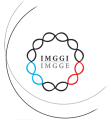Improving anti-cancer immunotherapy efficacy of CAR-T cells or P-D1/PD-L1 inhibitors by combining immune modulators
Research project within scientific and technological cooperation between the Republic of Serbia and the People’s Republic of China, 2022-2024
Principal Investigator: Prof. Danijela Djukic-Cosic, Faculty of pharmacy, University of Belgrade
Participants from IMGGE: Dr Aleksandar Pavic, Natasa Radakovic
Immune system of cancer patients is often weaken due to conventional treatment they receive, including chemo and/or radiotherapy, chronic activation of immune response by cancer neoantigens, and variety of chemicals they are constantly exposed to. Immune dysfunction may disrupt effectiveness of the given immunotherapy or facilitate cancer immune evasion. Except for the search for novel chemotherapeutics, certain biological treatments for cancer have been developed in the past ten years, including CAR-T cell therapy, adoptive T cell transfer or vaccines, all of them boosting the body's natural defenses to kill cancer cells. On the other side, it is well known that bacteria can mediate antitumor activities by indirect immune activation and direct tumoricidal effects, such as Pseudomonas aeruginosa rich in mannose-sensitive hemagglutination pili (PA-MSHA) that is proven to possess remarkably anti-tumor properties. However, the use of immunotherapy has been reserved to patients resistant to conventional chemotherapy due to high cost and yet unpredictable outcome. Therefore, this project aims to design new immune modulatory drug combinations based on sulforaphane and PA-MSH, which would improve cancer immunotherapy with CAR-T cells. Within this projects, immunomodulatory drug combinations will be examined for the safety profile and tested for the effect on CAR-T cells infiltration, survival, and anti-tumor function in in vitro (2D and 3D cell culture) and in vivo (zebrafish and rodents) model systems.


